On Father's Day, The Father of South African Special Forces, Colonel Jan Dirk Breytenbach Passed into Eternity
Legendary South African soldier, Jan Breytenbach fought the good fight, kept the Faith and now has finished his race.
On Father's Day, Sunday,16 June, at the age of 91, the father of South African Special Forces went to be with his Heavenly Father and has been called by his Commander in Chief to Higher Service. Jan Breytenbach had a distinguished career in the SADF. Colonel Breytenbach not only founded the South African Special Forces (the Reconnaissance Commandos, or “Recces”) and 44 Parachute Brigade, but 32 Battalion as well. We praise God for a life well lived, for a courageous Christian soldier who made vital contributions to the development of the South African Defence Force and who played a major role in bringing about the defeat of the Soviet led communist forces in Angola. In doing so he greatly contributed to the defeat of the Soviet Union and the winning of the Cold War. Colonel Breytenbach was a good friend of the Mission and an energetic and enthusiastic witness for Christ.
A Distinguished Military Career
Jan Dirk Breytenbach DVR SD SM MMM (14 July 1932 - 16 June 2024) was a career South African military officer and author of numerous military history and conservation books. He is best known as the first Commander of 1 Reconnaissance Commando, South Africa's first special forces unit. In his long career, he served in Royal Navy Fleet Air Arm during the Suez Crisis war of 1956, in the Biafran War (Frederick Forsyth identified Captain Jan Breytenbach as an inspiration for his novel The Dogs of War), the Southwest African Border War, and the Angolan Civil War, and attained the rank of Colonel before his retirement. Colonel Jan has been described as South Africa's most combat experienced soldier. He was involved in more than 50 battles and contacts/skirmishes, including leading the largest airborne assault in Africa’s history, the raid on SWAPO headquarters in Angola, The Battle of Cassinga. Jan Breytenbach attended the Army Gymnasium in 1950, was awarded the Sword of Peace in 1953 and joined the Royal Navy Fleet Air Arm after serving in the Armoured Corps. He served in the Suez Crisis war in 1956. (The Colonel told me how shocked he had been that the United States Navy consistently interfered and undermined the British Royal Navy operations in the eastern Mediterranean during the Suez crisis. Whenever their aircraft carrier turned into the wind to prepare for launch of their aircraft, a destroyer would cut across its power forcing the aircraft carrier to turn and for the launching of aircraft to be aborted. It was clear to him that Eisenhower’s administration was hostile to British foreign policy objectives in preserving the Suez Canal from nationalization by the radical pro Soviet government in Egypt at that time.) He rejoined the South African Defence Force, after South Africa left the British Commonwealth and became a Republic, in 1961 and soon after completed 1 Parachute Battalion's selection and training course. Fritz Loots commissioned him to organise 1 Reconnaissance Commando in 1971. In preparation for this he underwent the Selection and Training for C Squadron, Special Air Service, Rhodesia. During the Biafran war in Nigeria, Captain Jan Breytenbach led a company of South African paratroopers to assist the Christian Biafrans who were facing genocidal warfare from the federal forces in Nigeria. John Irvin, the director of the film The Dogs of War based the dramatic opening scene of the DC-3 flying out of a besieged airstrip under fire, with explosions all around, on Jan Breytenbach’s 1970 Flight out of Uli, the last airstrip in Biafra, at the end of that tragic war. In 1975 Major Breytenbach led Operation Savannah, the SADF's covert intervention in the Angolan Civil War. Major Jan Breytenbach not only routed the communist forces, but he returned with thousands of black Angolan soldiers recruited to fight for South Africa as part of the legendary 32 Battalion, or "Buffalo Battalion". This incredible story is related in Forged in Battle and They Live by the Sword. Commandant Jan Breytenbach attended Staff College in 1977 and was promoted to colonel. In 1978, he led the SADF air assault on the SWAPO HQ at Cassinga and has continued to contest opposing versions of the event in the press and through his book Eagle Strike. He became senior staff officer for Operations at Northern Transvaal Command and commanded 44 Parachute Brigade from 24 September 1980 to 31 December 1982. He founded the SADF School of Guerilla Warfare, which he commanded until his retirement in 1987. The Colonel described to me one amusing incident when he was training UNITA freedom fighters in Angola. He was not satisfied with their limp and half-hearted bayonet drill, so he demonstrated to the unit how to yell aggressively while thrusting the bayonet into the sack with force and determination. Most of the unit responded by fleeing into the Bush! The Colonel could be very intimidating and the sight and sound of him shouting Yaaagghh! While lunging forward with a bayonet must have been a fearful sight to the trainees! It took them almost a week to get all the unit back together again to continue training. Col Breytenbach retired from the military in 1987 and wrote a number of important books, including: Forged in Battle; They Live by the Sword, Buffalo Soldiers, the Story of South Africa's 32-Battalion, 1975–1993; Eagle Strike: The Story of the controversial airborne assault on Cassinga 1978; the Plunderers; Eden’s Exiles, one soldier's fight for paradise, The Tempered Sword: Forged in battle revisited, Operation Savannah and the birth of 32Bn.
When The Legendary Colonel Breytenbach joined Frontline Fellowship
I still remember the shock I experienced upon receiving a handwritten letter from the Colonel Jan Breytenbach. He had read my publication: the Christian at War and wanted to join our mission. I fell on my knees to pray for wisdom. How could a small mission like ours respond to such a legendary military leader wanting to join our humble ministry? I drove to Wilderness to meet with the Colonel and his delightful wife, Rosalind, in their home. It quickly became apparent that we had much in common as animal lovers. The Colonel was outraged by the ivory poaching carrying on in both Caprivi province of Southwest Africa and in Angola. Some high-ranking elements within the military were involved in this scandalous crime syndicate and they were using military aircraft and the Official Secrets Act to carry out their plundering of God's magnificent creatures. In Caprivi, the Colonel had adopted two Lions and a Leopard as his pets. Even at wilderness he had two Wildcats as pets. Later, when travelling with the Colonel in the field, I saw numerous battle scars on his body, along with numerous claw marks from his large feline pets! For Love of Wildlife We discussed the best way to expose the illegal hunting of elephants for ivory poaching by elements within military intelligence, without violating the Official Secrets Act and all the negative legal complications this could cause. Bushcraft, Tracking and Anti tracking We also planned for the Colonel to attend our next Frontline Fellowship Selection and Training Course which should be held in early January 1989, at Noordhoek. He would train our people in bushcraft, tracking and anti-tracking behind enemy lines infiltration and exfiltration procedures and tactics. Thereafter the Colonel would join us for a mission to Southwest Africa, Frontline fellowship had been invited to conduct chaplain's services and special outreaches to every unit in the Southwest African Operational Areas, including Sector seven zero, sector 20 and sector 10. All the soldiers listened to the most combat decorated soldier in South African history with great respect and awe as he testified of how he had come to realise his need of God’s love and mercy, how he had turned to Christ in repentance and faith and how each one of us needs to turn away from sin and turn to God. Southwest Africa At Chaplains services in Southwest Africa, The Colonel unleashed verbal warfare, he named names, exposed sins and crimes, such as Rhino and Ivory poaching which some individuals in CSI had been complicit in. Col. Breytenbach’s withering sermons made many wince in guilt as conviction overwhelmed countless men in uniform, most impressively at Big Tea at the Bastion (SWATF HQ), where even General Meiring was present. The Colonel preached as he fought, relentless and boldly. He hit his targets. Confronting Communists in Angola One morning, the Colonel rolled over in his sleeping bag and said to me: “Peter, let's go into Angola and preach to the communists!” As the Colonel was held in such high respect throughout the Operational Area, he had no problem convincing the local commandant to lend us a helicopter and a 32Bn soldier to act as interpreter so that we could communicate with the Portuguese speaking Angolan forces across the border. Throughout that memorable day, we flew to three separate locations along the border where the JMMC (Joint Military Monitoring Commission) had stations. Challenging Communist Cowards At each location we gathered the South African forces which normally included 32Bn men as they were bilingual, also understanding Portuguese. After opening in prayer and with Scripture reading, the Colonel would then turn to indicate the interested Angolan FAPLA and Cuban troops who had gathered around within hearing distance, leaning against Soviet vehicles and fingering their AK, PKM, RPD & RPG Soviet weapons, Colonel Breytenbach declared: “You see these communists over there. They are cowards. I have fought these miserable specimens many times since 1975 and every time they ran away. Not once did they beat us. We won all our battles against them. We never had any trouble killing them, the problem was finding and catching them, because they always ran away! Now why do these FAPLA run away? It is because they are cowards. They don’t know how to fight against real soldiers like 32 Battalion. The communists are only brave when they’re burning churches, bayonetting defenceless civilians and shooting ministers in the back of the head. But when faced with South African soldiers they run away like the pathetic cowards they are. We’ve killed thousands of these communists in Angola, these Bible-burners, these murderers and persecutors of the Church. Now, why are these communists such cowards? It is because they are afraid of dying. They know that when we fight, they lose. Because they do not worship God, they are afraid of death, because those who reject Christ will face God’s Judgment and they will all be eternally condemned. Yes, look at them,” Colonel Breytenbach pointed at the uncomfortable and self-conscious FAPLA troops. “They are all going to hell! They are the army of satan. Their commissars are the priests of the devil. Their god is Karl Marx. Their religion is Atheism. They are all going to hell!”
The Challenge
Then the Colonel looked directly at the South African troops and challenged them: “God has placed you here so that you can be His soldiers in the spiritual battle of bringing these communists to Repent of their sins and be converted to Christ. You should actually feel sorry for them because they do not have the religious freedom which we enjoy. They are deceived. Pray for them to be converted and use your time up here to serve God.” War Against the Church I also presented to the 32 Bn and FAPLA troops a testimony of what God had done in my life. Standing amidst the bullet-scarred wreckage of a destroyed Angolan town, I spoke of the persecuted Church. Pointing at the communist troops, I related what their “comrades” had done in desecrating churches, tearing up Bibles, burning villages and crucifying pastors. Confronting Atheists Then I posed the question: “These communists, they call themselves atheists. They say they do not believe in God. They teach children that God does not exist. Why then do they spend so much time and effort fighting against God?” War Against God “Why do they forbid Evangelism? Why do they destroy churches? Why do they burn Bibles? Could it be that they know in their hearts that God exists? They see it in Creation. They see God in the eyes of the pastors they have shot. They have seen the evidence of God in the faith of those believers who they’ve tortured. Surely these Marxists know that there is a God? They are not atheists. They know there is a God. But they hate Him.” From Communism to Christ “You who are Christians must thank God for the privilege He has blessed you with. God has given you the opportunity to so live and work in the sight of these heathen that they may daily be confronted with the reality of God. Sing Gospel songs and Hymns. Have regular prayer meetings and Bible studies. Speak often of your Faith. Share with them the Gospel literature and Bibles which we have brought for you. You could be the channel that God uses to save some of these Marxists away from the lies of the devil to the truth of God’s Word.” “Jesus said: ‘Follow Me and I will make you fishers of men.’” Matthew 4:19. “Those who sow in tears shall reap in joy.” Psalm 126:5. “Go, therefore and make disciples.” Matthew 28:19 At each of the JMMC posts we were well received by the 32 Bn troops and listened to with great interest by the Marxist troops. Reaction After a day of several such outreaches to the communist forces across the border at three locations in Angola, we returned to base at Ruacana. The Commandant walked over the airstrip to greet us as we deplaned from the Puma helicopter. “Colonel, the lines have been humming today! Pik Botha (The Minister of Foreign Affairs) is hopping mad! He says you are trying to restart the war! Voortrekkerhoogte has contacted the Bastion (SWATF HQ in Windhoek). The Bastion radioed Section 10 (Ondangwa). Sector 10 has radioed me. You and Hammond are to be out of the Operational Area first thing tomorrow!” Irony Colonel Breytenbach chuckled, “I fired the first shots of this war back in 1966. Now, I am expelled from the country I devoted 24 years to defending, for preaching the Gospel and telling the truth to our communist enemies! There is some irony here” We Fear Naught but God The next day at the 21C SWATF at the Bastion, Brigadier Gert Nel, commented to me: “We never could control Col. Breytenbach when he was in the Army. Just when we had thought we were rid of him; he resurfaces under Frontline Fellowship!” Decisive Victories in Angola At the height of the Cold War, from 1985 – 1988, the South African Defence Force faced increased confrontations with Soviet MiG fighter bomber jets and Mi-24 Hind helicopter gunships and massive ground offensives by Cuban-mechanised divisions in Angola. On every occasion the SADF decisively defeated the Soviet and Cuban communist forces Defeating the Soviet Union General Jannie Geldenhuys in his book “We Were There – Winning the War for Southern Africa”, documented the enormous Soviet mobilisation in Angola and the staggering losses they endured at the hands of the SADF. He quoted from Lt Col Igor Zhdarkin, who was a participant in the Angolan war. Zhardkin’s book: “We Did Not See It, even in Afghanistan!” published by the Russian Academy of Science Institute for Africa Studies. It attributed the Fall of the Soviet Union to the ripple effects of the disastrous defeats suffered by the Russians and their Cuban allies in Angola at the hands of the SADF.
The Beginning of the End of the Soviet Union
He also quoted from Josc Milhaze book: “Angola – the Beginning of the End of the Soviet Union.” Josc Milhaze is of Portuguese origin and was based in Russia. The Soviet Union Strategy to Seize South Africa Carlos Pacheco, a Brazilian historian, wrote the preface to Milhaze’s book: “The Fracas of Soviet Expansionism”, concluded: “The first priority of the Russian expansionism in Southern Africa was not so much important in terms of materials, but above all, about politics.” Pacheco emphasised that it was the Republic of South Africa that the Soviet had their sights on. Angola was only the stepping stone towards the mineral rich and strategic South Africa. The Battle of Lomba River in October 1987 the Soviet-FAPLA offensive was smashed at the Lomba River near Mavinga. It turned into a headlong retreat over the 120 miles back to the primary launching point at Cuito Cuanvale. In some of the bloodiest battles of the Angolan War, a combined force of some 4000 SADF troops destroyed a FAPLA brigade and devastated several others out of a total Angolan FAPLA force of over 18 000 men. The communists lost more than 4000 in this decisive battle. A Decisive Defeat for Soviet Expansionism The Lomba River offensive had been a Soviet planned operation from the beginning. More than 1000 Soviet “advisors” from the Red Army were assigned to Angola in 1987 to help with their largest logistical effort to date in the country. Over US Dollar 1.5 billion in military hardware was delivered that year. Much of this equipment was destroyed or fell into the hands of the SADF and UNITA forces when the Cuban and FAPLA forces broke into headlong retreat. The 1987 Lomba River disaster was a stunning humiliation for the Soviet Union, its weaponry and its strategy. The Cost of Victory At one hostile press conference in Windhoek, 32Bn’s Colonel Deon Ferreira, the Operational Commander of Operations Modular, Hooper and Packer, was challenged to respond to accusations that the South Africans had been beaten in the battles in Angola. Colonel Ferreira responded, tongue in cheek: “if defeat for South Africa meant the loss of 31 men, 3 tanks, 5 armoured vehicles and 3 aircraft, then we lost. If victory for FAPLA and the Cubans meant the loss of 4 600 men, 94 tanks, 100 armoured vehicles, 9 aircraft and other Soviet equipment totalled at more than a Billion dollars, then they won!” Victors are Not Executed by Their Own Side Facts are stubborn things. Such as the fact that the supreme communist commander for Angola, Cuban General Aranaldo Ochoa Sanchez, was executed by a firing squad, less than a year later, in Havana, Cuba. Victors are not executed by the winning side A British Perspective of the South African Army was given by General Sir Walter Walker, once NATO Commander-in-Chief of Allied Forces, Northern Europe. General Sir Walter Walker declared that the South African Army was the best trained and had the most formidable Infantry in the world. To illustrate his point, General Walker quoted from Sir Arthur Conan Doyle in his book, “The Great Boer War”: “Take a community of Dutchmen of the type of those who defended themselves for fifty years against all the power of Spain, at a time when Spain was the greatest power in the world. Intermix with them a strain of those inflexible French Huguenots who gave up home and fortune and left their country forever at the time of the Revocation of the Edict of Nantes. The product must obviously be one of the most rugged, virile, unconquerable races ever seen upon earth. Take this formidable people and train them for seven generations in constant warfare against savage men and ferocious beasts, in circumstances under which no weakling could survive, place them so that they acquire exceptional skill with weapons and in horsemanship, give them a country which is eminently suited to the tactics of the huntsman, the marksman, and the rider. Then, finally, put a finer temper upon their military qualities by a dour fatalistic Old Testament religion and an ardent and consuming patriotism. Combine all these qualities and all these impulses in one individual, and you have the modern Boer —the most formidable antagonist who ever crossed the path of Imperial Britain. Our military history has largely consisted in our conflicts with France, but Napoleon and all his veterans have never treated us so roughly as these hard-bitten farmers with their ancient Theology and their inconveniently modern rifles.”
Your browser does not support viewing this document. Click here to download the document.
5 Comments
"The Most Dangerous man in America" Dr. Jay Grimstead has Finished the Race and entered Glory. Jay Grimstead was born in 1935 and raised in Tacoma, Washington by his godly, Presbyterian grandmother. He died Sunday morning, June 2, 2024, after suffering from widespread cancer while under Hospice care. He is survived by his beloved wife, Donna, who is also in ill health. Jay graduated from Sterling College in Kansas with a B.S. in Biology, and from Fuller Seminary with a master’s in theology in 1961, he also earned a Doctor of Ministry degree in 1976. Dr Jay Grimstead is the author of the landmark book Rebuilding Civilization on the Bible: Proclaiming the Truth on 24 Controversial Issues and a dedicated Christian Theologian. He was also the initiator of such projects and Christian ministries as the International Church Council Project and the International Council on Biblical Inerrancy. Dr Jay Grimstead was the Director of Coalition on Revival. Jay was a friend of the late Dr Francis Schaeffer whom he considered as his mentor. Starting in the 1970s, God inspired Dr. Jay Grimstead to launch several crucial Theological movements. At one time, the ACLU called Dr. Jay Grimstead, the most dangerous man in America, because he called Evangelical Christians from every theological and denominational heritage back to the solid rock foundation of the Bible and the essential tenets of the Biblical Christian Faith. Two websites represent Dr. Jay’s life work and abiding legacy—the Coalition on Revival and the International Church Council Project—both dedicated to restoring of the Bible’s central place, championing its inerrancy and its authority over the lives of all mankind in every sphere of life. Dr. Jay Grimstead was a lifelong warrior and Reformer for the Kingdom of God and an enthusiastic friend to his coworkers. Dr. Jay Grimstead was a steadfast friend and Board member of Frontline Fellowship. We worked together on many projects including the Reformation 500 events in Wittenberg, Germany, October 2017. We had the privilege of standing together and singing a Mighty Fortress is our God, in the Schlosskirche where Professor Martin Luther had proclaimed the 95 theses which launched the Protestant Reformation 31 October 1517. Jay was the founder of the Coalition on Revival and the Church Council Project. Under these organizations, he was instrumental in creating a host of important Theological documents outlining the historic doctrines and positions of Bible based Christianity, taking a clear stand against dangerous and apostate trends prevalent in all too many churches today. Dr. Jay Grimstead and his team of the Coalition on Revival have provided the Church with an invaluable armoury of vital foundational documents to assist your Church and ministry in working for Biblical Reformation. These documents, including the ICBI Statement of Biblical Inerrancy, the 42 Articles of Historic Christian Doctrine, the 25 Articles of Affirmation and Denial on the Kingdom of God, and the Manifesto for the Christian Church represent decades of study and hard work by some of the finest minds in the Church today. You can read many of these documents in the Reformation 500 Coalition on Revival Fire Manual which is freely available online: These are solid foundations on which to build and powerful weapons to use in the world war of worldviews, tremendous tools for each one involved in applying the Lordship of Christ to all areas of life. Dr Jay was the author of the landmark book: Rebuilding Civilization on the Bible. He was well known in his home community of Murphys, California for his lively trumpet playing in parades and street corners. Dr. Grimstead was a favourite of the young for his lively, offbeat, rollicking sense of humour and fresh perspectives, he worked for 20 years with the international youth organization Young Life. For many years after that, he was a leading visionary and networker among Christian groups around the world.
Rebuilding Civilization on the Bible should be Required Reading for every serious Christian. This book is a great tool to produce, in all aspects of life, a God-centred, Bible based society and to bring glory to our Lord until He returns. Dr. George Grant, of Parish Presbyterian Church, Franklin, TN, wrote: “Over the course of a lifetime of fruitful ministry, Jay Grimstead has pointed the way toward substantive renewal and revival for Western Culture. His unwavering vision for an articulate application of Gospel principles in every arena of life and culture is captured in this work—a kind of Blueprint for the restoration of Christian civilization. May God give us the grace and courage to act in accord with this vision in the days ahead.” Dr Ted Baehr of the Christian Film & Television Commission® declared: “Jay Grimstead is the God ordained, God inspired, God sustained progenitor of Rebuilding Civilization on the Bible. God has given Jay wit and wisdom to turn society right side up. I support Jay 100% and recommend all that he does and writes!” Dr. Marshall Foster of World History Institute wrote: “The Coalition on Revival Documents are a vital foundation for the ministry of Christ to the nations in the twenty-first century. After four decades studying church history and revival, it is clear to me that no lasting revival can transform a nation unless God’s people are reading, believing, and applying God’s plan as detailed in the whole Bible. Any believer or group can fastrack their knowledge of the full counsel of God by studying this book. The truth revealed about how to apply our Faith to all areas of life can help spark another Reformation.” "Contend earnestly for the Faith which was once for all delivered to the saints.” Jude 1:3 Dr. Jay was an avid mountain climber and hiker, and it was my joy and privilege to hike with him in Yosemite National Park. Now he is exploring Aslan’s country, further up and further in. Now Dr Jay can say in the words of C.S. Lewis, The Last Battle: “I have come home at last! This is my real country! I belong here. This is the land I have been looking for all my life, though I never knew it till now...Come further up, come further in!” Now at last Dr Jay is “beginning Chapter One of the Great Story which no one on earth has read: which goes on for ever: in which every chapter is better than the one before.” Along with all the Saints, Dr Jay can now say: “The term is over: the holidays have begun. The dream is ended: this is the morning” “I have fought the good fight, I have finished the race, I have kept the Faith. Finally, there is laid up for me the crown of righteousness, which the Lord, the righteous Judge, will give to me on that Day, and not to me only but also to all who have loved His appearing.” 2 Timothy 4:7-8 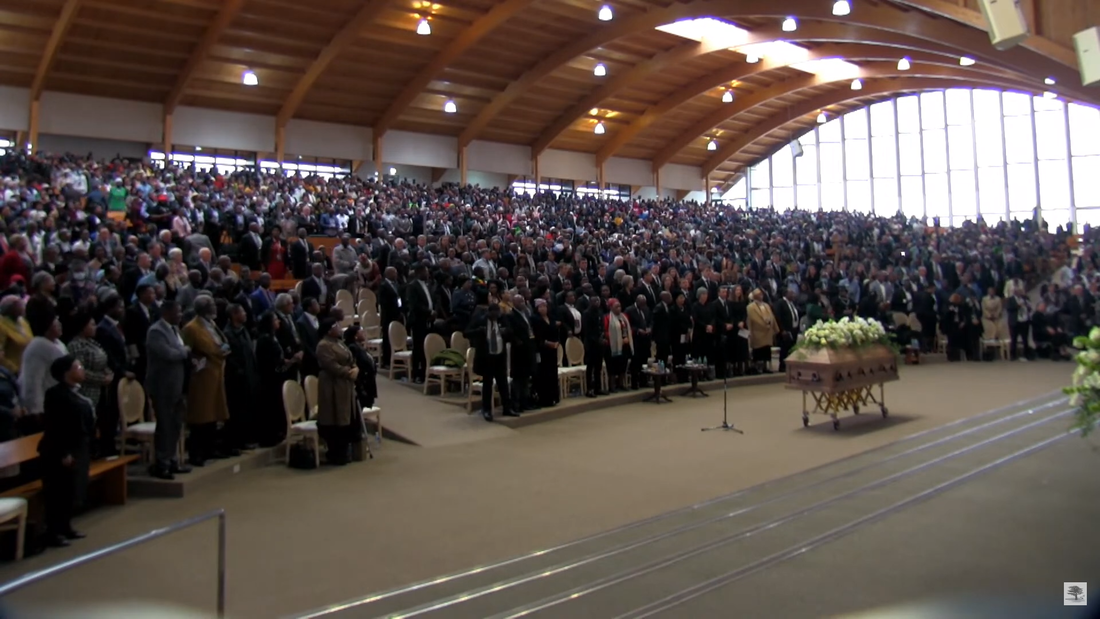 Massive attendance at Funeral service for Rev Erlo Stegen Sunday 8th October was an incredible experience at KwaSizabantu mission in KwaZulu-Natal as multiplied thousands of people poured in from all over the country and even from around the world to pay tribute to an extraordinary Missionary Pioneer and Revival preacher, Erlo Stegen who passed away at age 88 on 26 September. 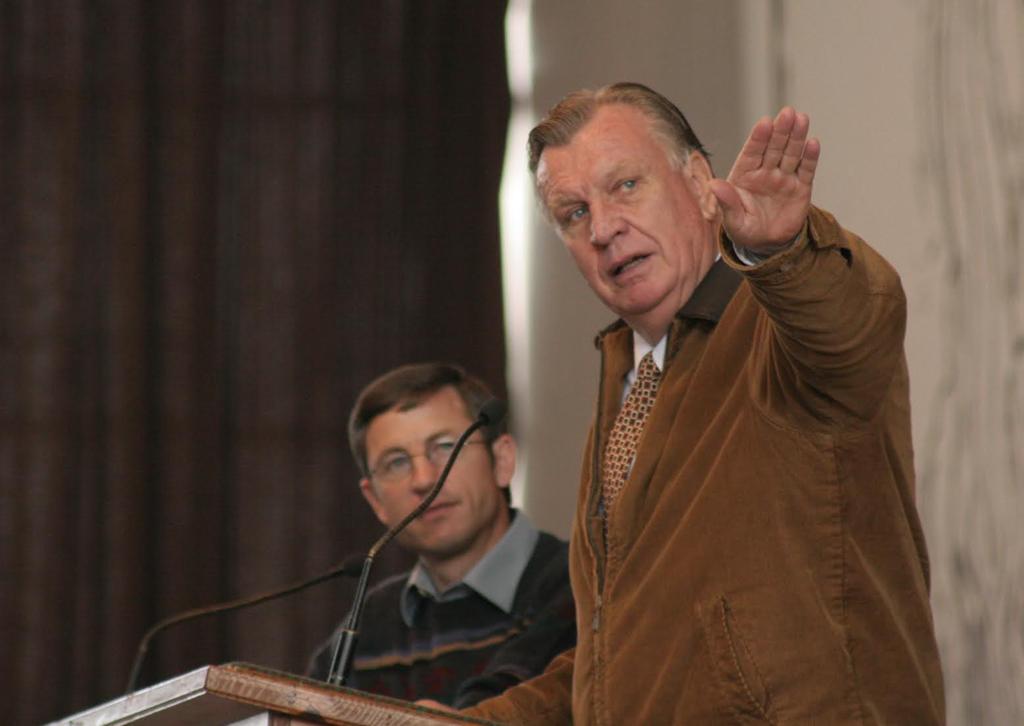 Testimonies of Revival The first time I heard of the remarkable ministry of Erlo Stegen, it was in 1980, at the 6th South African Infantry Battalion at Grahamstown military base. Marius Pretorius related to our Bible study and Prayer Fellowship extraordinary testimonies of the Revival at KwaSizabantu Mission. I must admit to being more than a little sceptical. The many healings and miracles sounded too good to be true. However, when I was invited to speak to a parents conference at KwaSizabantu Mission, January 1987, I was able to see for myself that Marius had actually understated the case. 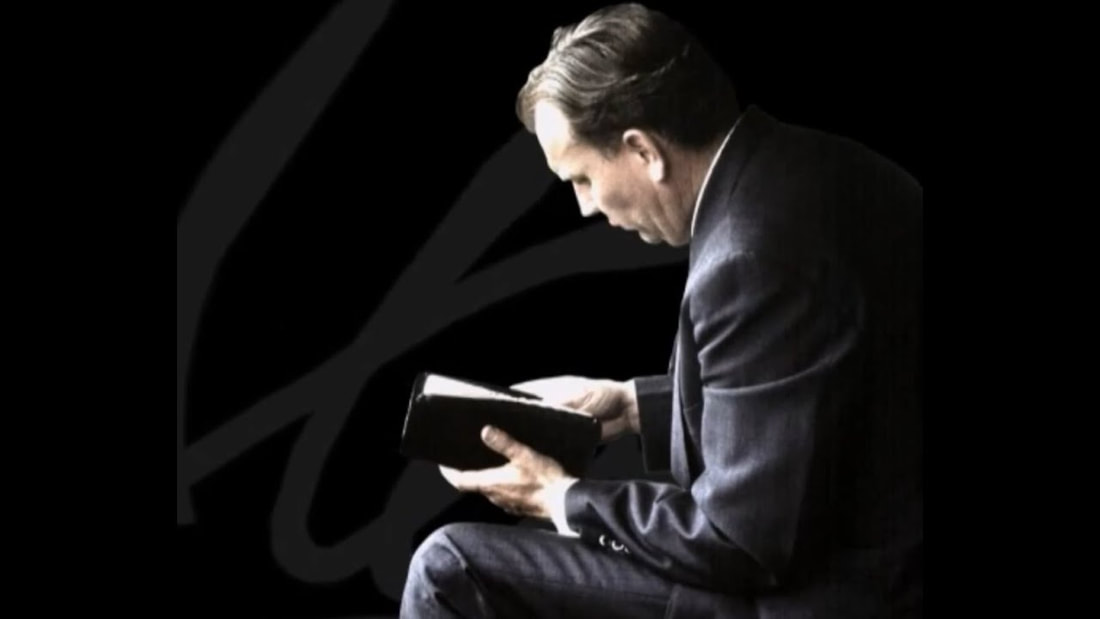 On Tuesday,26 September, I arrived at KwaZulu-Natal just as the news broke, that Uncle Erlo, The Founder and Director of KwaSizabantu Mission had passed into eternity at age 88. As I arrived at the Stegen home, I was asked to speak to the family and co-workers gathered on the lawn. I reminded our good friends that Jesus came to heal the brokenhearted. That he took our griefs upon the Cross. Our Lord Jesus Christ wept at the tomb of his friend Lazarus. He reminded Martha that her brother would rise from the dead. Martha acknowledged that he would rise on the last day. Jesus declared: I am the Resurrection and the Life. He who believes in Me shall live, even though he dies. Rev Erlo Stegen has run the race and kept the Faith .There is a crown laid up for him in glory. We must praise God for a life well lived and for the life and legacy of this extraordinary Bondservant of Christ. 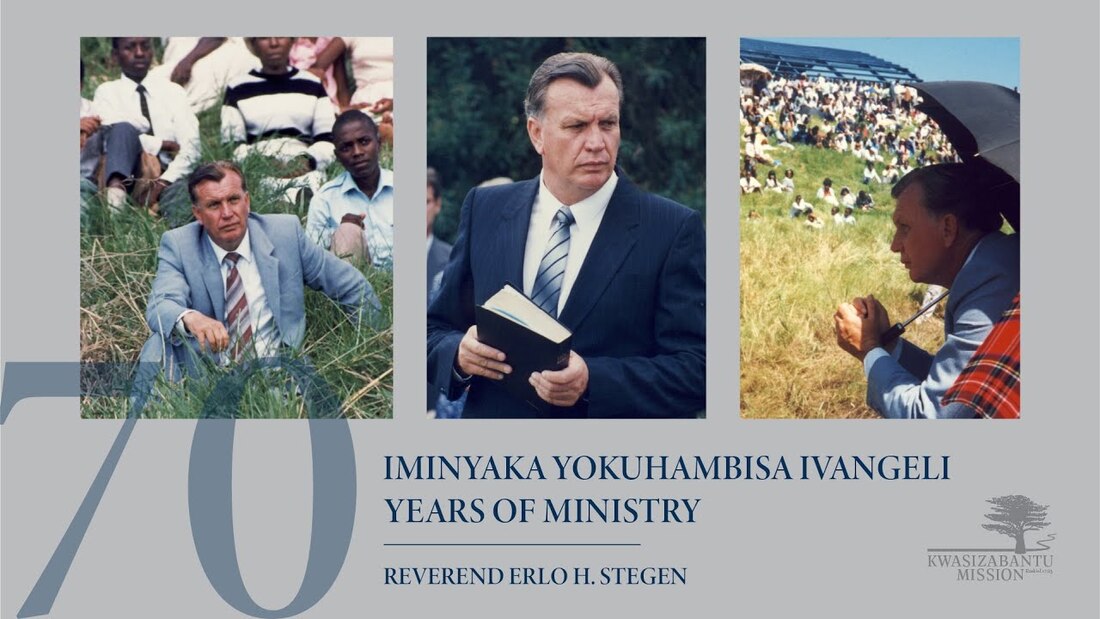 KwaSizabantu Mission is the most extraordinary and successful mission station on the continent of Africa. KwaSizabantu originated 70 years ago when God graciously sent Revival among the Zulus. The founder of KwaSizabantu Mission, Rev. Erlo Stegen is the second youngest of 5 brothers. In his testimony, he explains that when he was growing up, he only went to church because his parents compelled him to go. His attitude was: “When I’m grown up, I’ll throw all this religious stuff overboard.”Then God began to convict him of his disobedience towards his parents, his quarrelsomeness with his brothers, and the wickedness of his own heart. “I was a lost sinner, in spite of the fact that I said my prayers and went to church. God says, ‘The soul that sinneth, it shall die’.” Ezekiel 18:4 “If sin rules a person’s life, that soul shall die, unless he confesses his sins and forsakes them. I cried to God, ‘Lord Jesus, I need you! Change my life and save me from my sins’.” 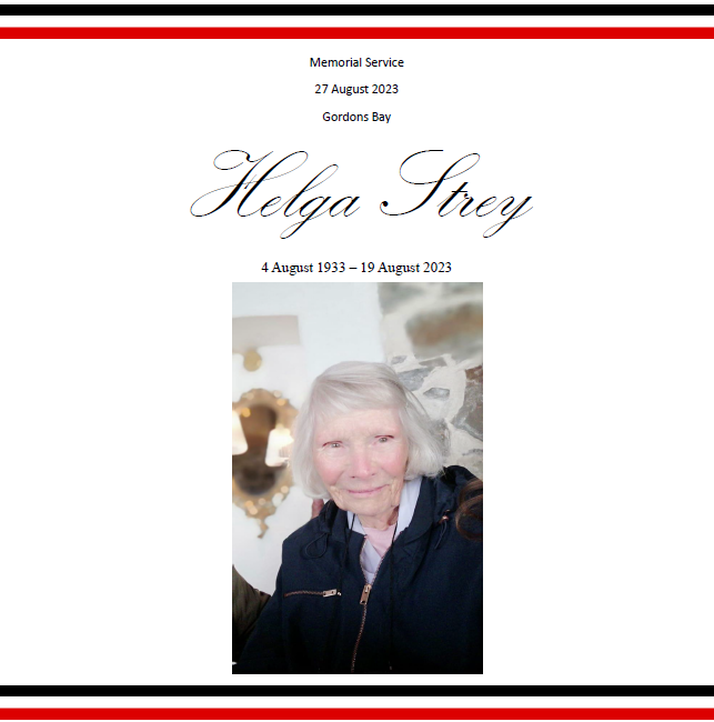 Helga Gertrud Strey was born on 4th August 1933 in Rehoboth, South West Africa, the middle child to Johanna and Rudolf Strey. She grew up with her siblings on Farm ‘Büllsport’ near the Naukluft Mountains South of Windhoek, in South West Africa.During 1936 the family visited the Grandparents (fathers’ parents) in Potsdam, Germany. The family returned to SWA just before the Second World War erupted. As from 1940 Helga and her older sister attended school in Swakopmund where they had to stay in the boarding school hostel for 6 years. At first they attended a German school and later were forced to switch to an English school. In December 1940 their father was taken away to a Concentration Camp along with all German men of “fighting age” and was only allowed to return 6 and 1/2 years later. In the meantime, Helga’s mother managed the farm with her grandmother, aunt and uncle. In 1945 Helga's father was released from the Concentration Camp, but was forced to stay in South Africa for another three months. He started working at the Botanical Institute of Stellenbosch University, so the family joined him in Stellenbosch, where the children continued their schooling. When the parents divorced, her mother stayed on in Stellenbosch until they and finished their schooling. The girls went to Bloemhof Girls High, and the brother went to Paul Ross College. After school, Helga went to Grootte Schuur Hospital in Cape Town to study nursing. During 1957 she returned to South West Africa to help her sister and brother-in-law look after their 3 children, while her sister was in hospital for 3.5 months. Then her brother Rolf came to visit from Northern Rhodesia and Helga went back to Northern Rhodesia (today Zambia) with him. After her holiday in Rhodesia, Helga went to Johannesburg for further studies in the field of Maternity, after which she moved to Lüderitz, SWA, to work. She was then stationed in Windhoek , where she worked for the State and did Community Health work all over South West Africa. She worked as part of an aeronautical Emergency Response team. After 4 years, Helga moved back to South Africa where she lived and worked in Cape Town, Somerset West and surrounding areas. She was the head Matron in the Maternity wards of Springbok, Calvinia and Malmesbury. In 2006, Helga joined the Reformation Society and Livingstone Fellowship, in Rondebosch, where she was involved in research of World History, something she thoroughly enjoyed. During 2020 she moved to Pinelands Place where she continued to stay abreast on current affairs, read voraciously and visit friends, until she ended up spending the final weeks in Gordons Bay. We have a letter Helga wrote to her nieces of her experiences during the war, which gives some good insights to her early life: "My knowledge of WW2 started just before we returned to South West Africa after a year’s visit to our grandparents in Berlin. We left Hamburg by ship via South Hampton in England. However, because of the pre-war atmosphere our German ship Usambara was guided onto a sandbank. (The harbour Captain of the country has to guide a ship in and out of a harbour anywhere in the world, it is practised even today). 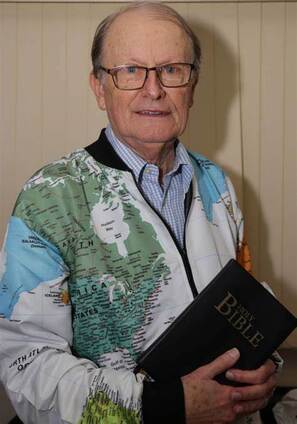 To listen to the From the Frontline audio on this:https://fromthefrontline.podbean.com/e/from-the-frontline-episode-256-george-verwer-mission-mobiliser-extraordinary/ Beloved husband of Drena and father of Ben, Daniel and Christa, George Verwer has completed his earthly pilgrimage and journey. After a brief battle with cancer, George died peacefully at home near London, surrounded by his family. George Verwer was a good friend of our mission and a co-worker with Rev Bill Bathman. Lenora remembered uncle George being a regular guest around the dinner table in their home near Salzburg in Austria. This past week the global Church and missionary movement lost one of its great mission mobilisers. George Verwer, the founder of Operation Mobilisation passed away on 14 April after a battle with cancer. The Founder of Operation Mobilisation motivated and mobilised tens of thousands of missionary volunteers to proclaim, in word and action, God’s love around the globe. 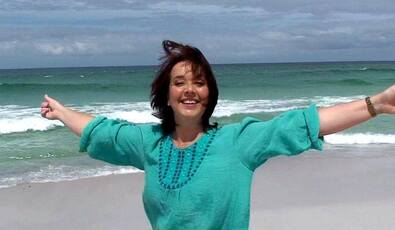 To see a video of Rozanne Visagie's Eulogy, Click Here Rozanne Visagie, who has been courageously battling cancer and chemo for 12 years now, passed away in hospital yesterday, Sunday, 2nd October. Rozanne is the daughter of President PW Botha, the last real Christian South African President of integrity. 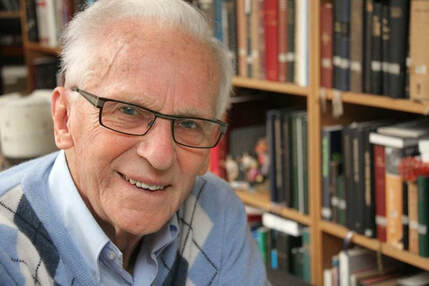 To listen to an audio presentation on this article, Click Here To see a Video presentation on this article, Click Here To see a ScreenCapture presentation of this article, Click Here His Most Important and Exciting Journey Andrew van der Bijl, known throughout the world as Brother Andrew, God's Smuggler, passed into eternity on Tuesday, 27 September 2022, at age 94. This will certainly be his most important and exciting journey. Brother Andrew was a Dutch Christian missionary who dedicated his life to smuggling Bibles to persecuted Christians, behind the Iron Curtain, in communist Eastern Europe. After the fall of the Berlin Wall, he refocused his energies on serving persecuted Christians in the Muslim Middle East. As Andrew declared: I.S.L.A.M. should stand for “I Sincerely Love All Muslims.” He visited Hamas and PLO leaders, including Yasser Arafat, giving them Bibles. Andrew travelled to 125 countries in his extraordinary life. His wife, Corry van der Bijl, died in 2018. They had five children together. |
Other Tributes...
All
Archives
June 2024
|
"And Jesus came and spoke to them, saying, “All authority has been given to Me in heaven and on earth.
Go therefore and make disciples of all the nations, baptizing them in the name of the Father and of the Son and of the Holy Spirit,
teaching them to observe all things that I have commanded you; and lo, I am with you always, even to the end of the age.” Amen.” Matthew 28: 18-20
Go therefore and make disciples of all the nations, baptizing them in the name of the Father and of the Son and of the Holy Spirit,
teaching them to observe all things that I have commanded you; and lo, I am with you always, even to the end of the age.” Amen.” Matthew 28: 18-20
|
P.O.Box 74 Newlands 7725
Cape Town South Africa |
|
























 RSS Feed
RSS Feed
